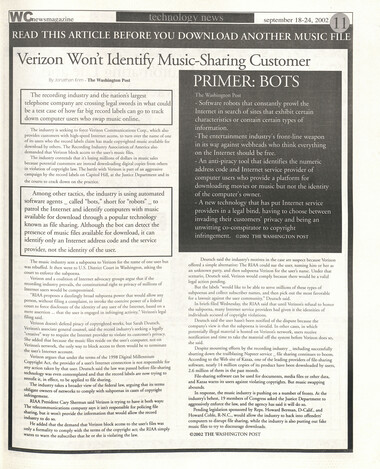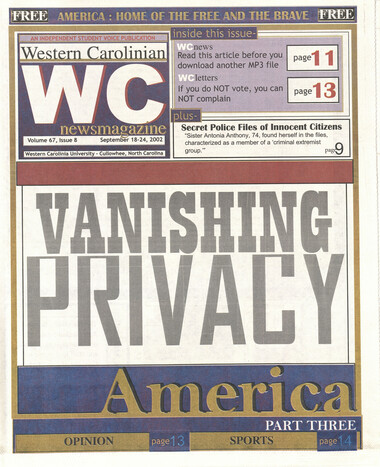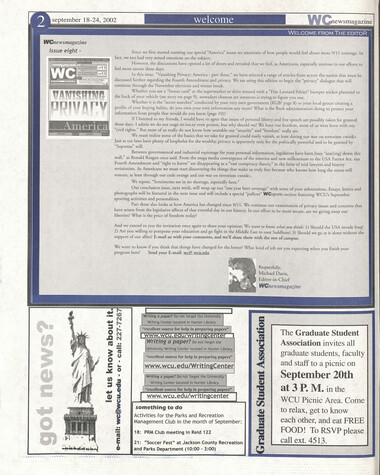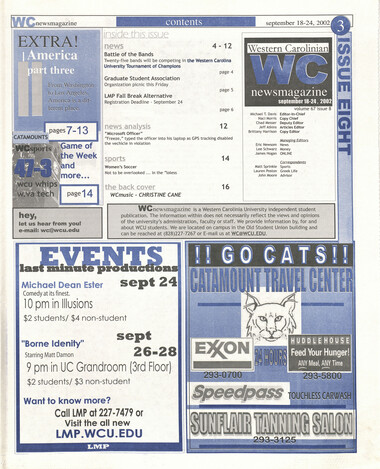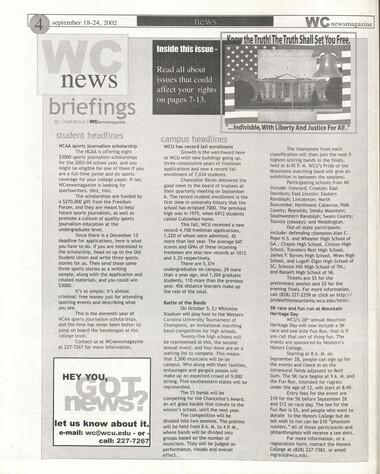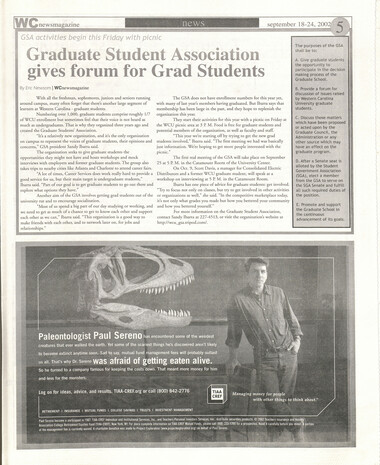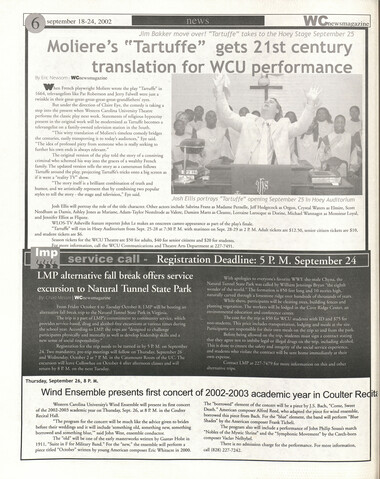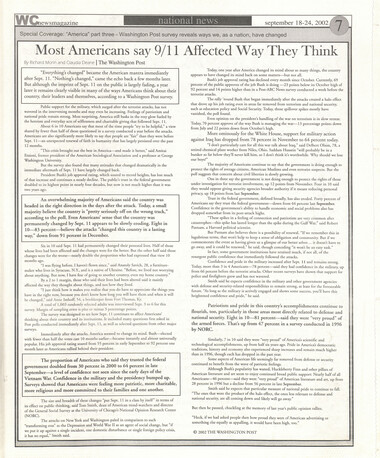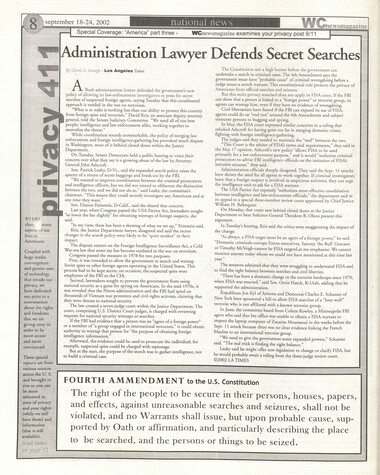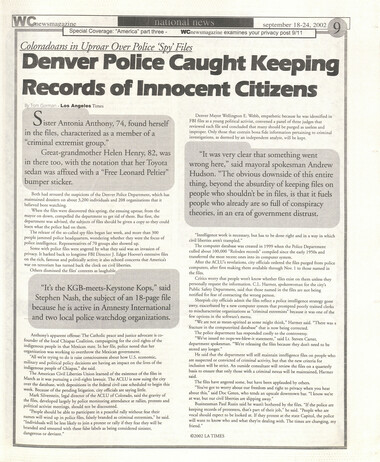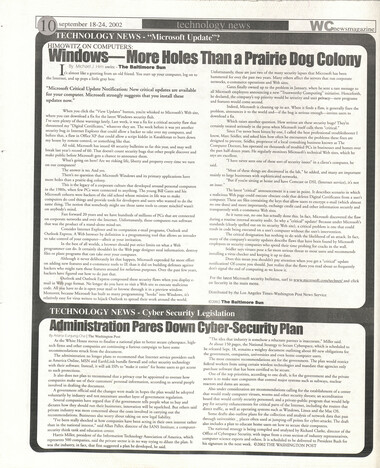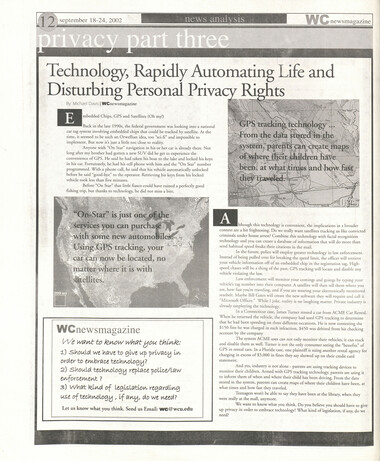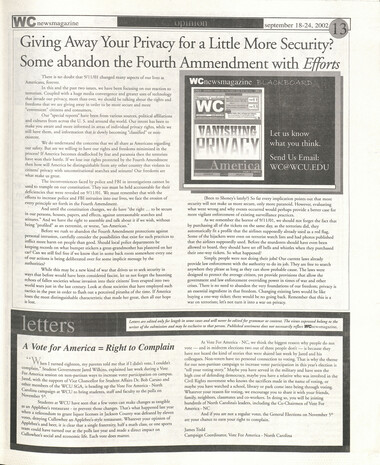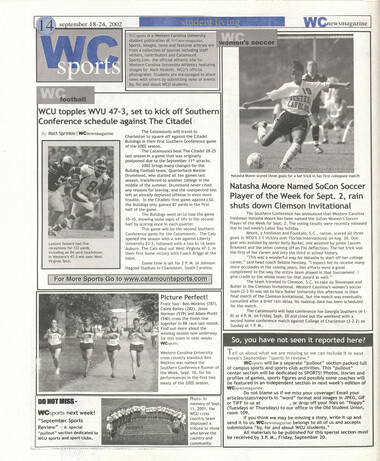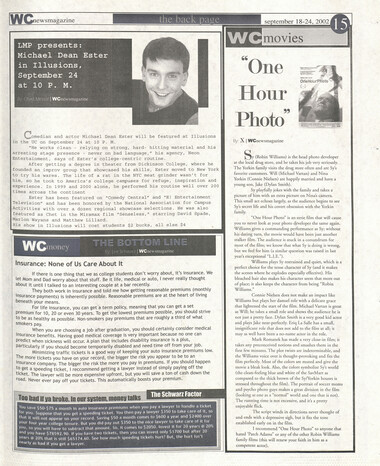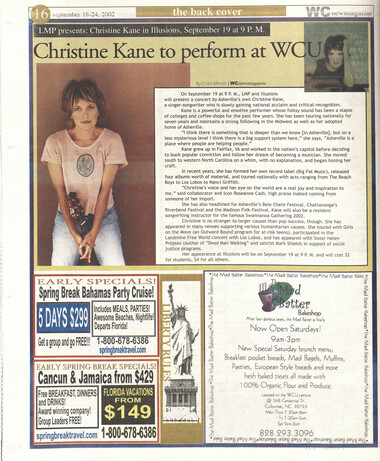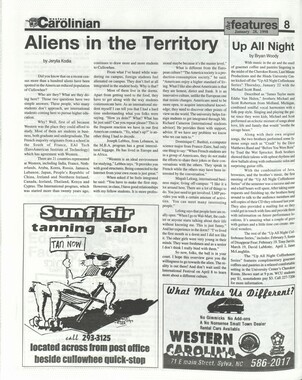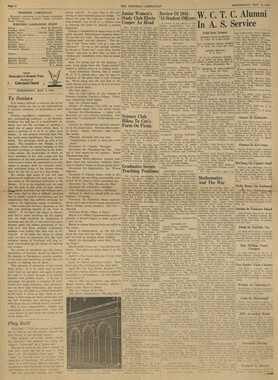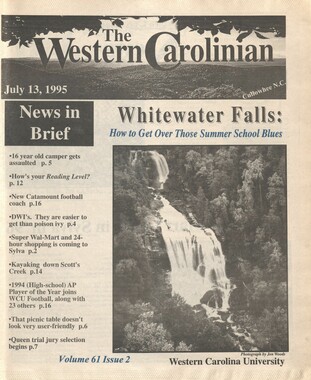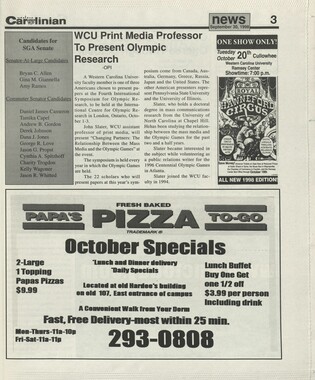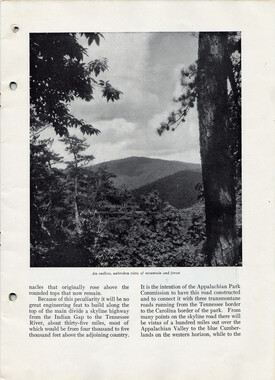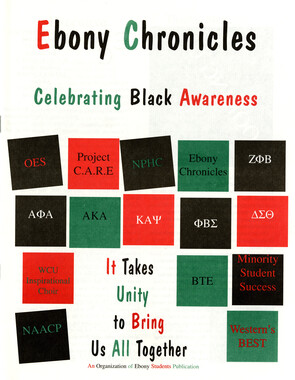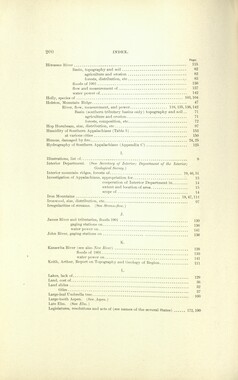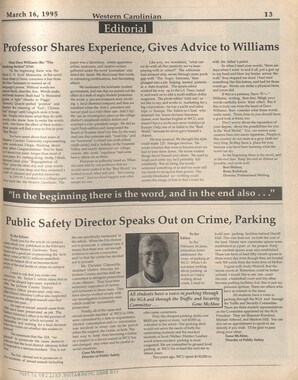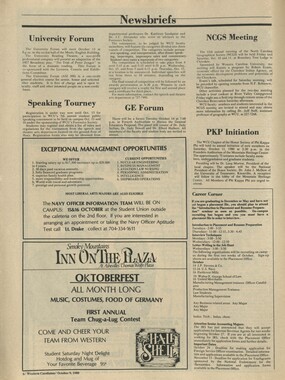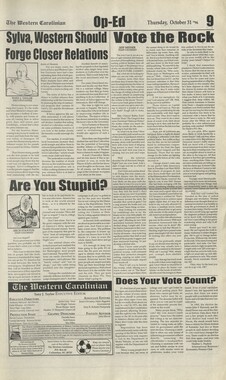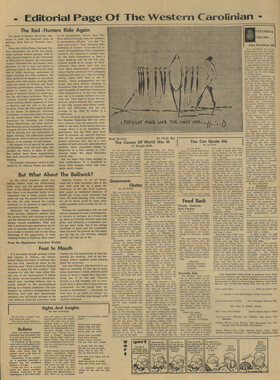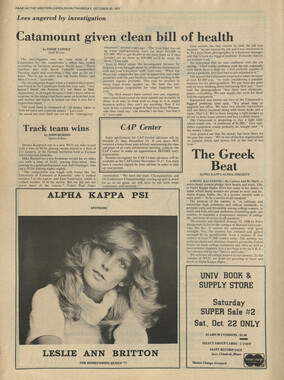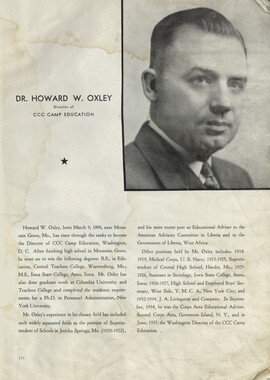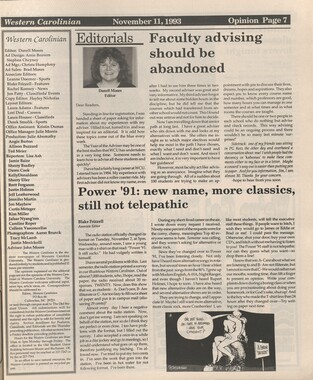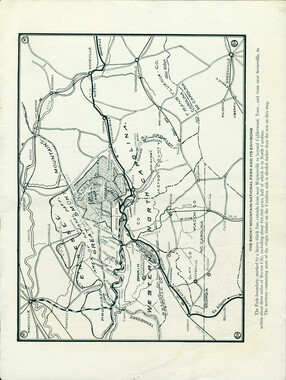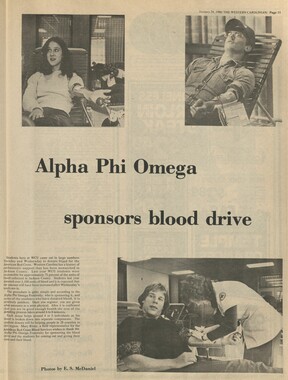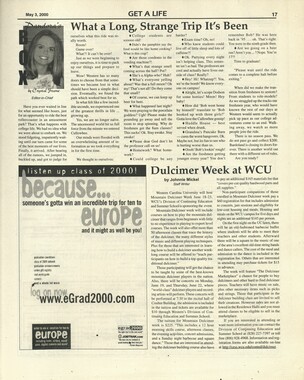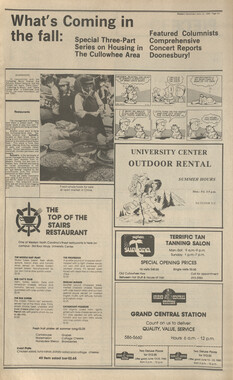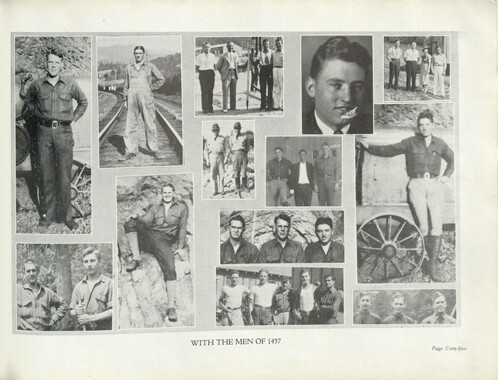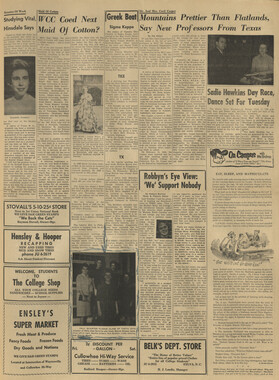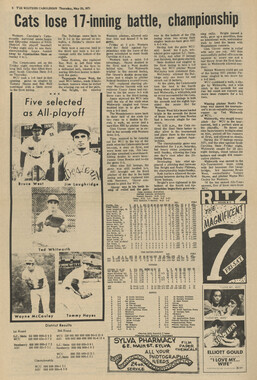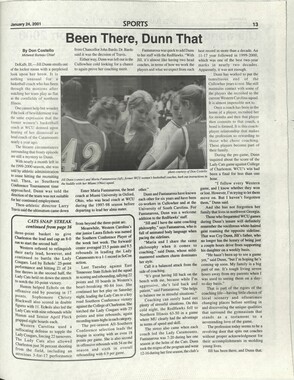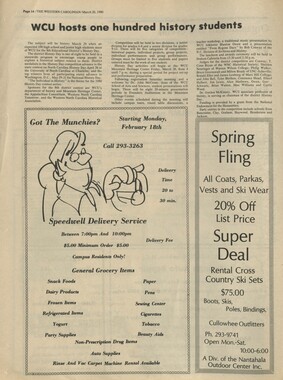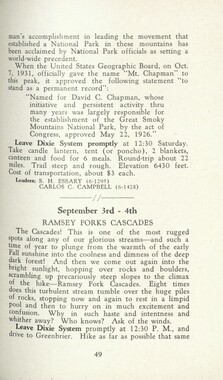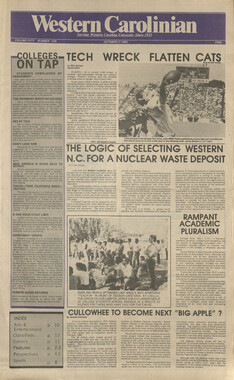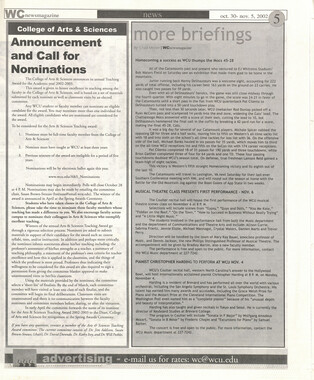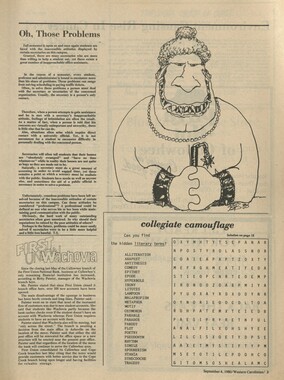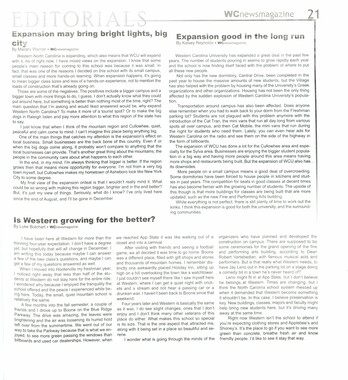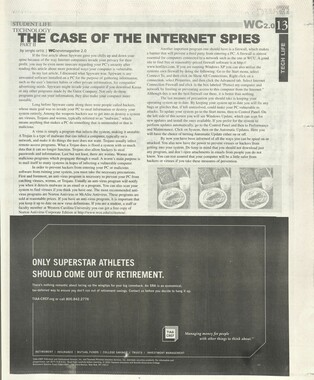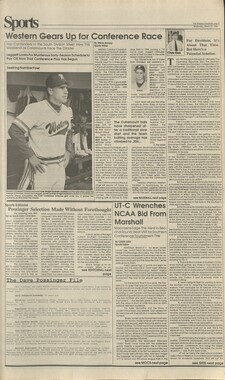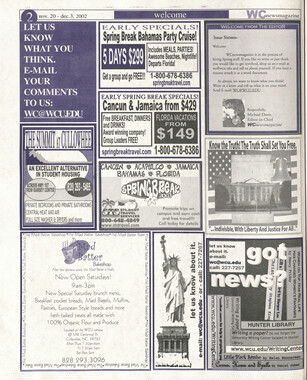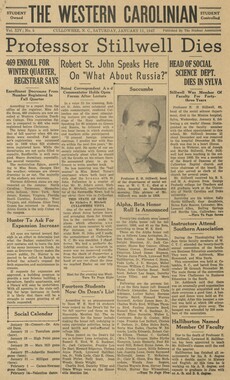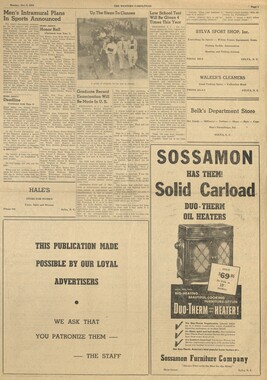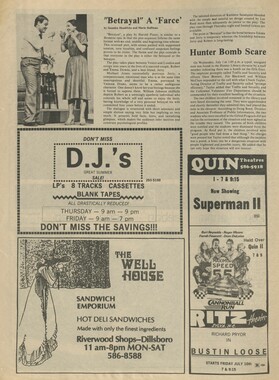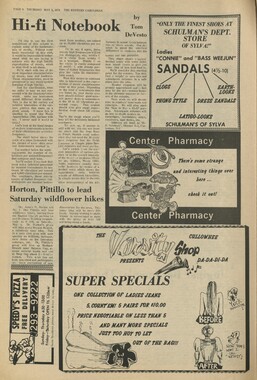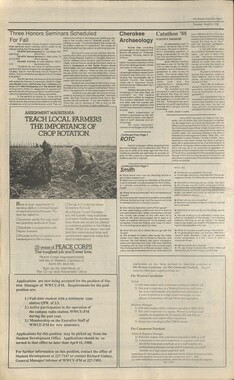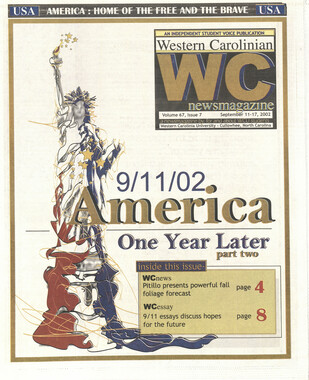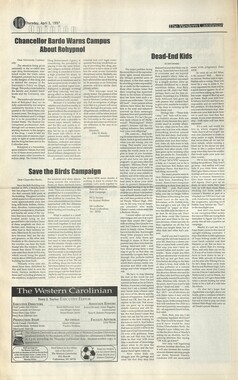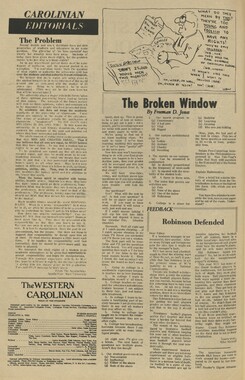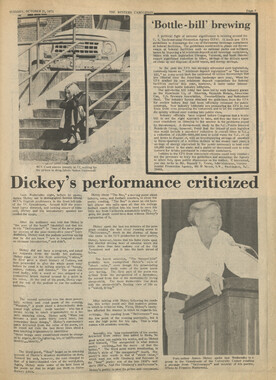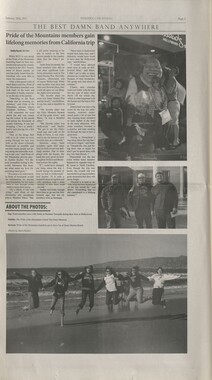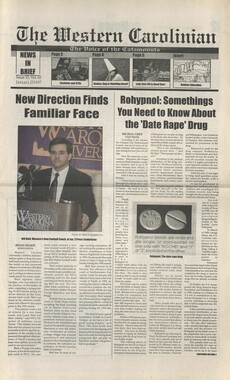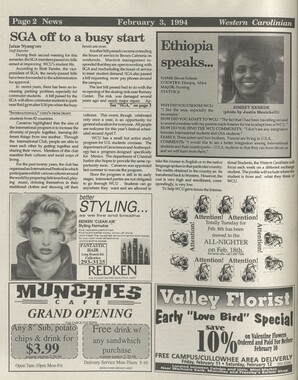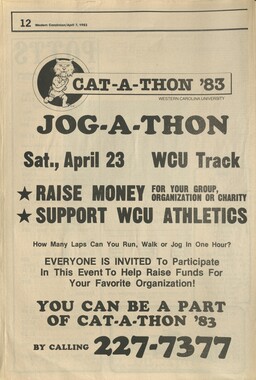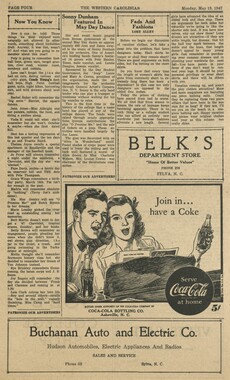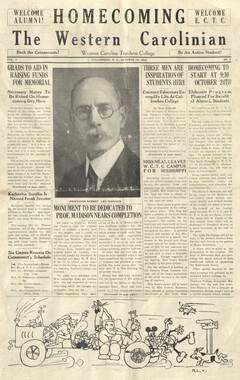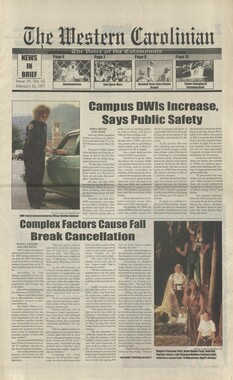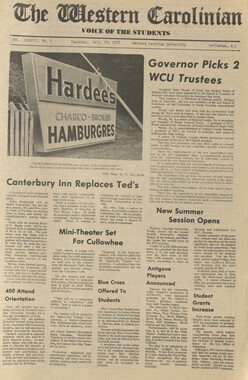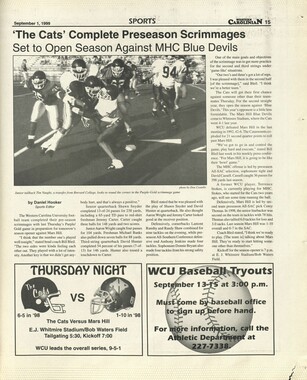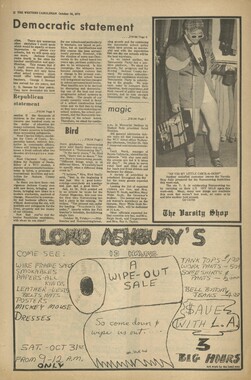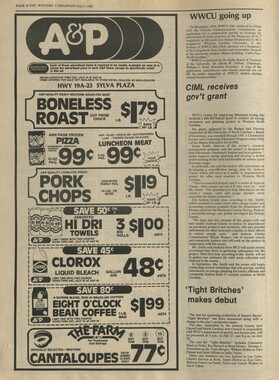Western Carolina University (21)
View all
- Canton Champion Fibre Company (2308)
- Cherokee Traditions (291)
- Civil War in Southern Appalachia (165)
- Craft Revival (1942)
- George Masa Collection (135)
- Great Smoky Mountains - A Park for America (2901)
- Highlights from Western Carolina University (422)
- Horace Kephart (941)
- Journeys Through Jackson (159)
- LGBTQIA+ Archive of Jackson County (85)
- Oral Histories of Western North Carolina (314)
- Picturing Appalachia (6798)
- Stories of Mountain Folk (413)
- Travel Western North Carolina (153)
- Western Carolina University Fine Art Museum Vitreograph Collection (129)
- Western Carolina University Herbarium (92)
- Western Carolina University: Making Memories (738)
- Western Carolina University Publications (2491)
- Western Carolina University Restricted Electronic Theses and Dissertations (146)
- Western North Carolina Regional Maps (71)
- World War II in Southern Appalachia (131)
University of North Carolina Asheville (6)
View all
- Allanstand Cottage Industries (62)
- Appalachian National Park Association (53)
- Bennett, Kelly, 1890-1974 (1463)
- Berry, Walter (76)
- Brasstown Carvers (40)
- Carver, George Washington, 1864?-1943 (26)
- Cathey, Joseph, 1803-1874 (1)
- Champion Fibre Company (233)
- Champion Paper and Fibre Company (297)
- Cherokee Indian Fair Association (16)
- Cherokee Language Program (22)
- Crowe, Amanda (40)
- Edmonston, Thomas Benton, 1842-1907 (7)
- Ensley, A. L. (Abraham Lincoln), 1865-1948 (275)
- Fromer, Irving Rhodes, 1913-1994 (70)
- George Butz (BFS 1907) (46)
- Goodrich, Frances Louisa (120)
- Grant, George Alexander, 1891-1964 (96)
- Heard, Marian Gladys (60)
- Kephart, Calvin, 1883-1969 (15)
- Kephart, Horace, 1862-1931 (313)
- Kephart, Laura, 1862-1954 (39)
- Laney, Gideon Thomas, 1889-1976 (439)
- Masa, George, 1881-1933 (61)
- McElhinney, William Julian, 1896-1953 (44)
- Niggli, Josephina, 1910-1983 (10)
- North Carolina Park Commission (105)
- Osborne, Kezia Stradley (9)
- Owens, Samuel Robert, 1918-1995 (11)
- Penland Weavers and Potters (36)
- Roberts, Vivienne (15)
- Roth, Albert, 1890-1974 (142)
- Schenck, Carl Alwin, 1868-1955 (1)
- Sherrill's Photography Studio (2565)
- Southern Highland Handicraft Guild (127)
- Southern Highlanders, Inc. (71)
- Stalcup, Jesse Bryson (46)
- Stearns, I. K. (213)
- Thompson, James Edward, 1880-1976 (226)
- United States. Indian Arts and Crafts Board (130)
- USFS (683)
- Vance, Zebulon Baird, 1830-1894 (1)
- Weaver, Zebulon, 1872-1948 (58)
- Western Carolina College (230)
- Western Carolina Teachers College (282)
- Western Carolina University (2008)
- Western Carolina University. Mountain Heritage Center (18)
- Whitman, Walt, 1819-1892 (10)
- Wilburn, Hiram Coleman, 1880-1967 (73)
- Williams, Isadora (3)
- Cain, Doreyl Ammons (0)
- Crittenden, Lorraine (0)
- Rhodes, Judy (0)
- Smith, Edward Clark (0)
- Appalachian Region, Southern (2693)
- Asheville (N.C.) (1936)
- Avery County (N.C.) (26)
- Blount County (Tenn.) (195)
- Buncombe County (N.C.) (1672)
- Cherokee County (N.C.) (283)
- Clay County (N.C.) (556)
- Graham County (N.C.) (236)
- Great Smoky Mountains National Park (N.C. and Tenn.) (519)
- Haywood County (N.C.) (3569)
- Henderson County (N.C.) (70)
- Jackson County (N.C.) (4913)
- Knox County (Tenn.) (35)
- Knoxville (Tenn.) (13)
- Lake Santeetlah (N.C.) (10)
- Macon County (N.C.) (420)
- Madison County (N.C.) (215)
- McDowell County (N.C.) (39)
- Mitchell County (N.C.) (132)
- Polk County (N.C.) (35)
- Qualla Boundary (982)
- Rutherford County (N.C.) (76)
- Swain County (N.C.) (2182)
- Transylvania County (N.C.) (270)
- Watauga County (N.C.) (12)
- Waynesville (N.C.) (86)
- Yancey County (N.C.) (72)
- Aerial Photographs (3)
- Aerial Views (60)
- Albums (books) (4)
- Articles (1)
- Artifacts (object Genre) (228)
- Bibliographies (1)
- Biography (general Genre) (2)
- Cards (information Artifacts) (38)
- Clippings (information Artifacts) (191)
- Copybooks (instructional Materials) (3)
- Crafts (art Genres) (622)
- Depictions (visual Works) (21)
- Design Drawings (1)
- Drawings (visual Works) (185)
- Envelopes (73)
- Exhibitions (events) (1)
- Facsimiles (reproductions) (1)
- Fiction (general Genre) (4)
- Financial Records (12)
- Fliers (printed Matter) (67)
- Glass Plate Negatives (381)
- Guidebooks (2)
- Internegatives (10)
- Interviews (815)
- Land Surveys (102)
- Letters (correspondence) (1013)
- Manuscripts (documents) (618)
- Maps (documents) (177)
- Memorandums (25)
- Minutes (administrative Records) (59)
- Negatives (photographs) (6090)
- Newsletters (1290)
- Newspapers (2)
- Notebooks (8)
- Occupation Currency (1)
- Paintings (visual Works) (1)
- Pen And Ink Drawings (1)
- Periodicals (193)
- Personal Narratives (10)
- Photographs (12976)
- Plans (maps) (1)
- Poetry (5)
- Portraits (4568)
- Postcards (329)
- Programs (documents) (181)
- Publications (documents) (2443)
- Questionnaires (65)
- Relief Prints (26)
- Sayings (literary Genre) (1)
- Scrapbooks (282)
- Sheet Music (2)
- Slides (photographs) (402)
- Songs (musical Compositions) (2)
- Sound Recordings (796)
- Specimens (92)
- Speeches (documents) (18)
- Tintypes (photographs) (8)
- Transcripts (322)
- Video Recordings (physical Artifacts) (23)
- Text Messages (0)
- A.L. Ensley Collection (275)
- Appalachian Industrial School Records (7)
- Appalachian National Park Association Records (336)
- Axley-Meroney Collection (2)
- Bayard Wootten Photograph Collection (20)
- Bethel Rural Community Organization Collection (7)
- Blumer Collection (5)
- C.W. Slagle Collection (20)
- Canton Area Historical Museum (2110)
- Carlos C. Campbell Collection (462)
- Cataloochee History Project (64)
- Cherokee Studies Collection (4)
- Daisy Dame Photograph Album (5)
- Daniel Boone VI Collection (1)
- Doris Ulmann Photograph Collection (112)
- Elizabeth H. Lasley Collection (1)
- Elizabeth Woolworth Szold Fleharty Collection (4)
- Frank Fry Collection (95)
- George Masa Collection (173)
- Gideon Laney Collection (452)
- Hazel Scarborough Collection (2)
- Hiram C. Wilburn Papers (28)
- Historic Photographs Collection (236)
- Horace Kephart Collection (861)
- Humbard Collection (33)
- Hunter and Weaver Families Collection (1)
- I. D. Blumenthal Collection (4)
- Isadora Williams Collection (4)
- Jesse Bryson Stalcup Collection (47)
- Jim Thompson Collection (224)
- John B. Battle Collection (7)
- John C. Campbell Folk School Records (80)
- John Parris Collection (6)
- Judaculla Rock project (2)
- Kelly Bennett Collection (1482)
- Love Family Papers (11)
- Major Wiley Parris Civil War Letters (3)
- Map Collection (12)
- McFee-Misemer Civil War Letters (34)
- Mountain Heritage Center Collection (4)
- Norburn - Robertson - Thomson Families Collection (44)
- Pauline Hood Collection (7)
- Pre-Guild Collection (2)
- Qualla Arts and Crafts Mutual Collection (12)
- R.A. Romanes Collection (681)
- Rosser H. Taylor Collection (1)
- Samuel Robert Owens Collection (94)
- Sara Madison Collection (144)
- Sherrill Studio Photo Collection (2558)
- Smoky Mountains Hiking Club Collection (616)
- Stories of Mountain Folk - Radio Programs (374)
- The Reporter, Western Carolina University (510)
- Venoy and Elizabeth Reed Collection (16)
- WCU Gender and Sexuality Oral History Project (32)
- WCU Mountain Heritage Center Oral Histories (25)
- WCU Oral History Collection - Mountain People, Mountain Lives (71)
- WCU Students Newspapers Collection (1923)
- Western North Carolina Tomorrow Black Oral History Project (69)
- William Williams Stringfield Collection (2)
- Zebulon Weaver Collection (109)
- African Americans (390)
- Appalachian Trail (35)
- Artisans (521)
- Cherokee art (84)
- Cherokee artists -- North Carolina (10)
- Cherokee language (21)
- Cherokee pottery (101)
- Cherokee women (208)
- Church buildings (190)
- Civilian Conservation Corps (U.S.) (111)
- College student newspapers and periodicals (2012)
- Dams (107)
- Dance (1023)
- Education (222)
- Floods (61)
- Folk music (1015)
- Forced removal, 1813-1903 (2)
- Forest conservation (220)
- Forests and forestry (1195)
- Gender nonconformity (4)
- Great Smoky Mountains National Park (N.C. and Tenn.) (181)
- Hunting (45)
- Landscape photography (25)
- Logging (119)
- Maps (83)
- Mines and mineral resources (8)
- North Carolina -- Maps (18)
- Paper industry (38)
- Postcards (255)
- Pottery (135)
- Railroad trains (72)
- Rural electrification -- North Carolina, Western (3)
- School integration -- Southern States (2)
- Segregation -- North Carolina, Western (5)
- Slavery (5)
- Sports (452)
- Storytelling (243)
- Waterfalls -- Great Smoky Mountains (N.C. and Tenn.) (66)
- Weaving -- Appalachian Region, Southern (280)
- Wood-carving -- Appalachian Region, Southern (328)
- World War, 1939-1945 (173)
Western Carolinian Volume 67 Number 08
Item
Item’s are ‘child’ level descriptions to ‘parent’ objects, (e.g. one page of a whole book).
-
-
ewsma azine technolog news september 18-24, 2002 READ THIS ARTICLE BEFORE YOU DOWNLOAD ANOTHER MUSIC FILE Verizon Won't Identify Music-Sharing Customer By Jonathan Krim - The Washington Post The recording industry and the nation's largest telephone company are crossing legal swords in what could be a test case of how far big record labels can go to track down computer users who swap music online. The industry is seeking to force Verizon Communications Corp., which also provides customers with high-speed Internet access, to turn over the name of one of its users who the record labels claim has made copyrighted music available for download by others. The Recording Industry Association of America also demanded that Verizon block access to the user's music files. The industry contends that it's losing millions of dollars in music sales because potential customers are instead downloading digital copies from others in violation of copyright law. The battle with Verizon is part of an aggressive campaign by the record labels on Capitol Hill, at the Justice Department and in the courts to crack down on the practice. Among other tactics, the industry is using automated software agents _ called "bots," short for "robots" to patrol the Internet and identify computers with music available for download through a popular technology known as file sharing. Although the bot can detect the presence of music files available for download, it can identify only an Internet address code and the service provider, not the identity of the user. The music industry sent a subpoena to Verizon for the name of one user but was rebuffed. It then went to U.S. District Court in Washington, asking the court to enforce the subpoena. Verizon and a coalition of Internet advocacy groups argue that if the recording industry prevails, the constitutional right to privacy of millions of Internet users would be compromised. "RIAA proposes a dazzlingly broad subpoena power that would allow any person, without filing a complaint, to invoke the coercive power of a federal court to force disclosure of the identity of any user of the Internet, based on a mere assertion ... that the user is engaged in infringing activity," Verizon's legal filing said. Verizon doesn't defend piracy of copyrighted works, but Sarah Deutsch, Verizon's associate general counsel, said the record industry's seeking a legally creative" way to require the Internet provider to violate its customer's privacy. She added that because the music files reside on the user's computer, not on Verizon's network, the only way to block access to them would be to terminate the user's Internet account. Verizon argues that under the terms of the 1998 Digital Millennium Copyright Act, the provider of a user's Internet connection is not responsible for any action taken by that user. Deutsch said the law was passed before file-sharing technology was even contemplated and that the record labels are now trying to retrofit it, in effect, to be applied to file sharing. The industry takes a broader view of the federal law, arguing that its terms Obligate owners of networks to comply with subpoenas in cases of copyright infringement. RIAA President Cary Sherman said Verizon is trying to have it both ways: The telecommunications company says it isn't responsible for policing file sharing, but it won't provide the information that would allow the record industry to do so. He added that the demand that Verizon block access to the user's files was only a formality to comply with the terms of the copyright act; the RIAA simply wants to warn the subscriber that he or she is violating the law. PRIMER: BOTS The Washington Post Software robots that constantly prowl the Internet in search of sites that exhibit certain characteristics or contain certain types of information. -The entertainment industry's front-line weapon in its wa! against webheads who think everything on the Internet should be free. - An anti-piracy tool that identifies the numeric address code and Internet service provider of computer users who provide a platform for downloading movies or music but not the identity of the computer's owner. A new technology that has put Internet service providers in a legal bind, having to choose between invading their customers' privacy and being an unwitting co-conspirator to copyright infringement. 02002 THE WASHINGTON POST Deutsch said the industry's motives in the case are suspect because Verizon offered a simple alternative: The RIAA could sue the user, naming him or her as an unknown party, and then subpoena Verizon for the user's name. Under that scenario, Deutsch said, Verizon would comply because there would be a valid legal action pending. But the labels "would like to be able to serve millions of these types of subpoenas and collect subscriber names, and then pick out the most favorable for a lawsuit against the user community," Deutsch said. In briefs filed Wednesday, the RIAA said that until Verizon's refusal to honor the subpoena, many Internet service providers had given it the identities of individuals accused of copyright violations. Deutsch said the user hasn't been notified of the dispute because the company's view is that the subpoena is invalid. In other cases, in which potentially illegal material is hosted on Verizon's network, users receive notification and time to take the material off the system before Verizon does so, she said. Despite mounting efforts by the recording industry _ including successfully shutting down the trailblazing Napster service _ file sharing continues to boom. According to the Web site of Kazaa, one of the leading providers of file-sharing software, nearly 14 million copies of its product have been downloaded by users, 2.6 million of them in the past month. File-sharing software can be used for documents, media files or other data, and Kazaa warns its users against violating copyrights. But music swapping abounds. In response, the music industry is pushing on a number of fronts. At the industry's behest, 19 members of Congress asked the Justice Department to aggressively enforce the law, and the agency has said it will do so. Pending legislation sponsored by Reps. Howard Berman, D-Calif., and Howard Coble, R-N.C., would allow the industry to hack into offenders' computers to disrupt file sharing, while the industry is also putting out fake music files to try to discourage downloads. 02002 THE WASHINGTON POST
Object
Object’s are ‘parent’ level descriptions to ‘children’ items, (e.g. a book with pages).
-
The Western Carolinian is Western Carolina University's student-run newspaper. The paper was published as the Cullowhee Yodel from 1924 to 1931 before changing its name to The Western Carolinian in 1933.
-
